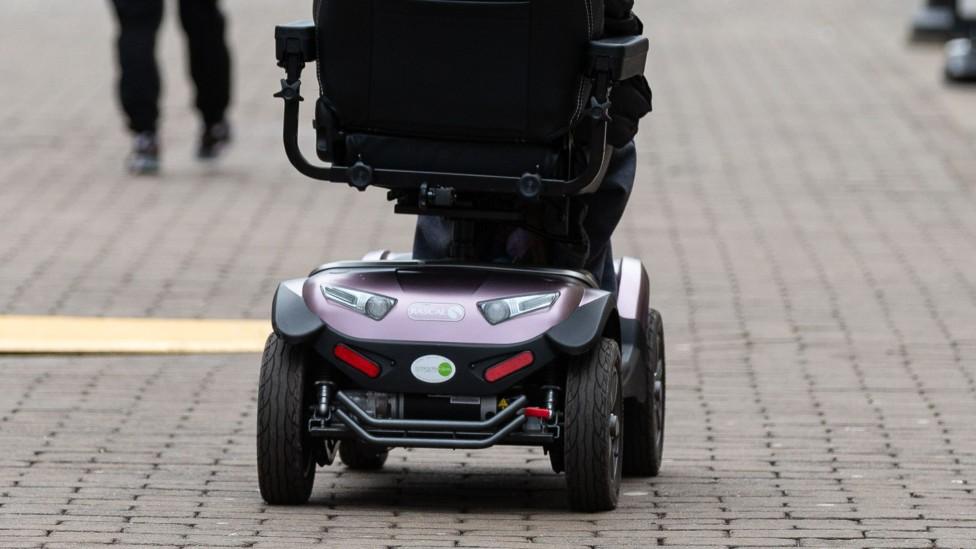'Fire-risk' mobility scooters face flats ban
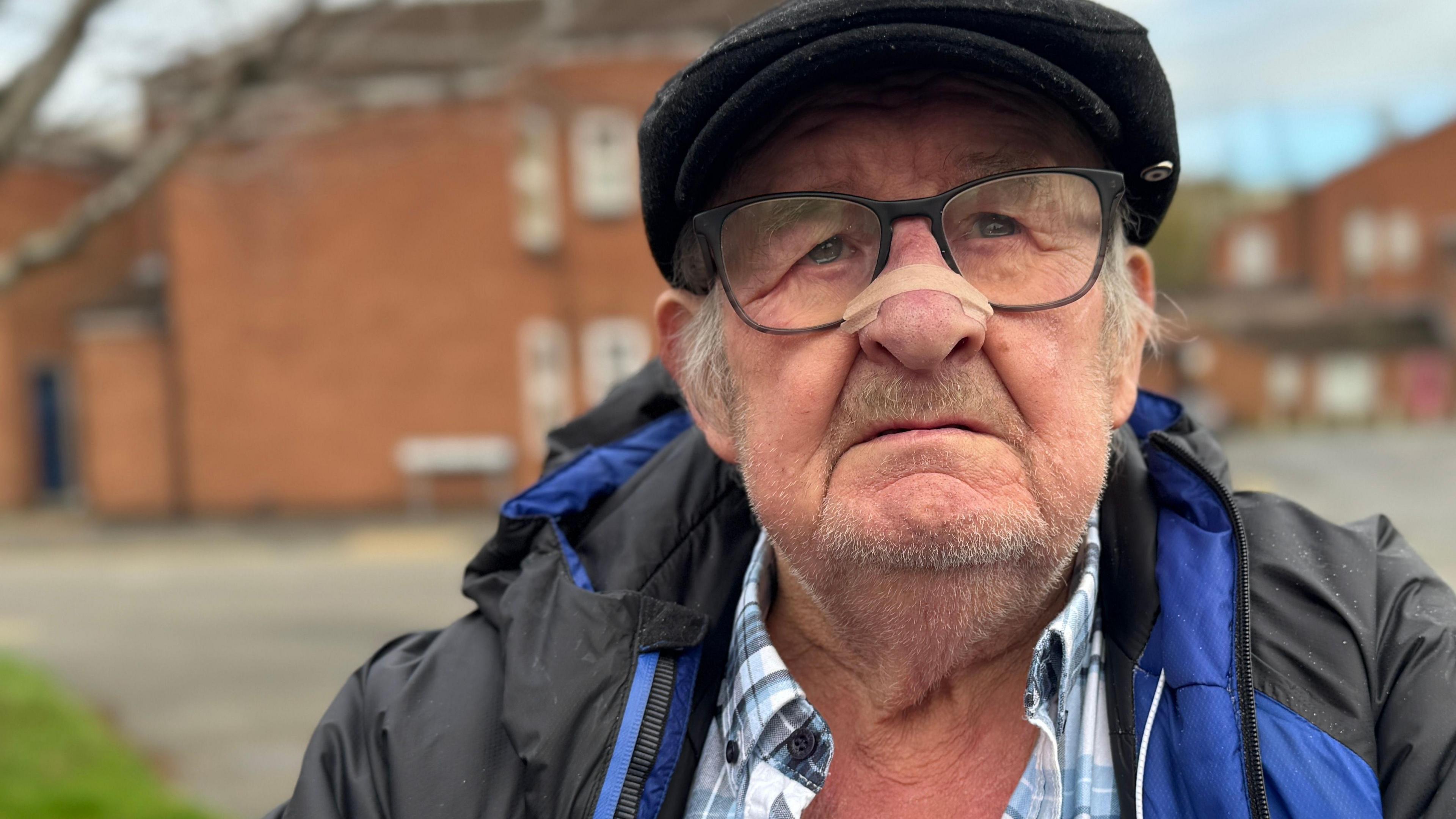
Peter Carter says he is dependent upon his mobility scooter
- Published
Elderly and disabled residents living in sheltered accommodation will have to get permission to have mobility scooters, following concerns over possible fire risks, a council has said.
South Kesteven District Council is to introduce a registration system and will stop people storing their scooters in corridors and communal areas. It has promised to provide "pods" instead, or move people if their scooter cannot be kept safely.
Some residents have told the authority they could "lose their independence and become housebound" without a scooter, according to a report for the authority, external.
Councillor Virginia Moran, the housing portfolio holder, said safety had to be "the number one priority".
The council said it had 36 sheltered housing schemes and an increasing number of scooters were being used and stored. The batteries were a fire risk and the scooters could block access in corridors and fire escapes.
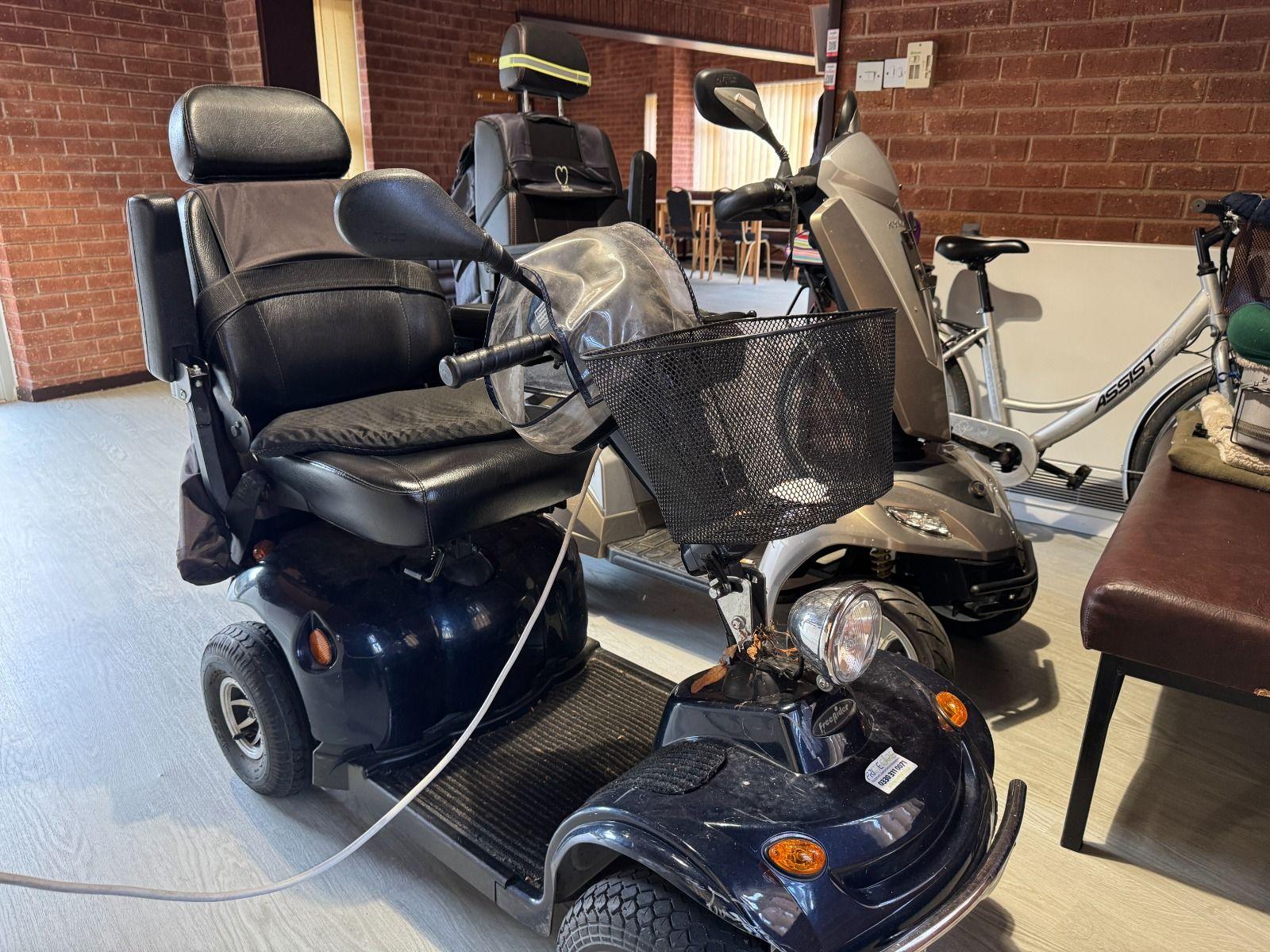
Two mobility scooters inside a sheltered housing scheme in Grantham
Moran said some owners had been seen using extension leads to charge their scooters through windows.
"In a worst-case scenario, you've got elderly people in a smoke-filled corridor trying to get out of the building and going smack into a scooter," she said.
"In some of the community rooms, we have three or four scooters all plugged-in, charging up."
In future, all mobility scooters will have to be registered and will not be allowed inside lifts or flats.
Moran said the council would build pods – either outdoors or in dedicated areas – to store and charge the scooters, or move people if demand outstripped supply.
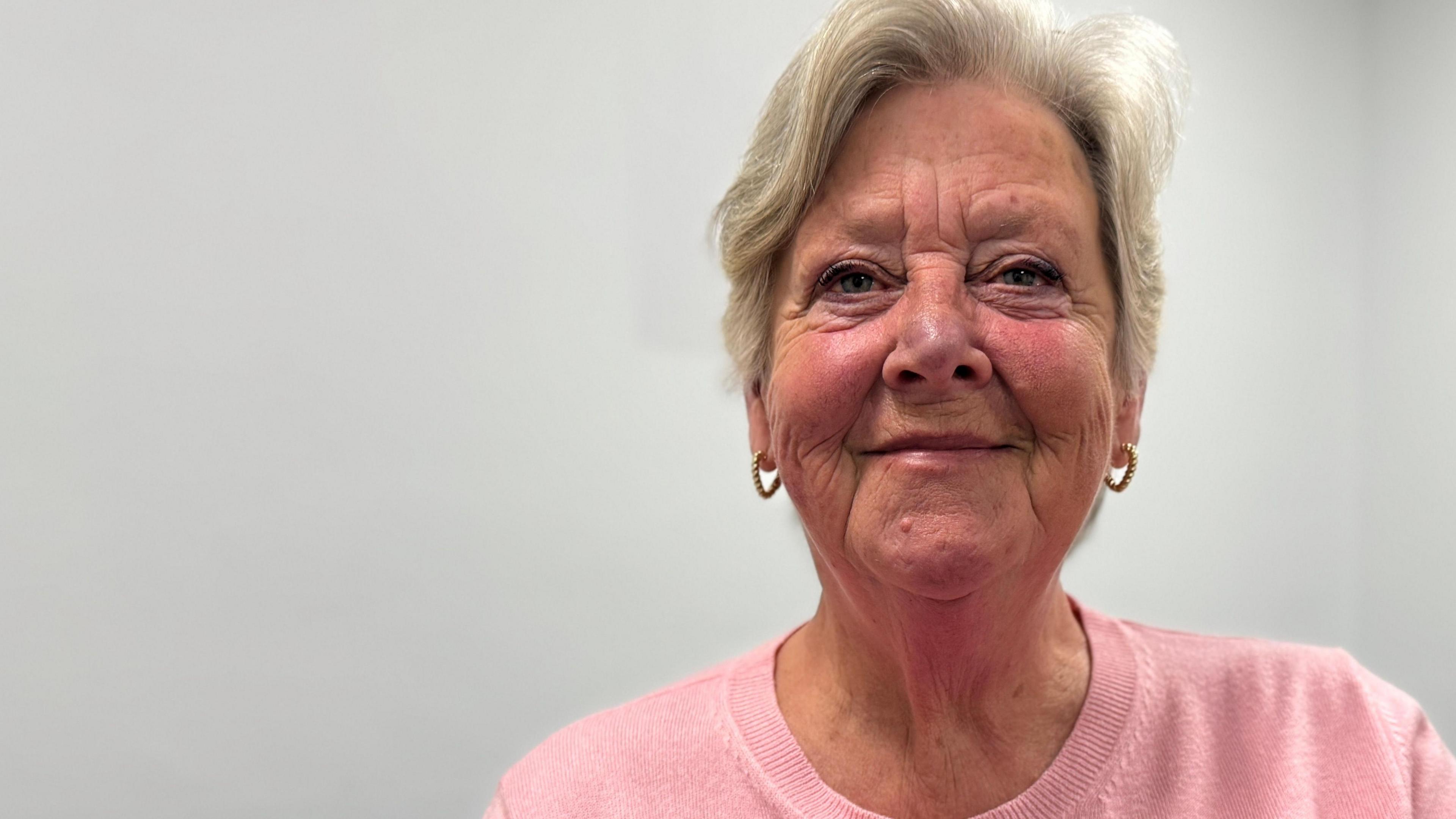
Councillor Virginia Moran says "safety has to be the number one priority"
Scooter user Peter Carter, 74, lives in a flat in a sheltered housing scheme in Grantham.
"I'm on oxygen and can't manage without it," he said. "I keep it in the common room but it's well away from the fire escape."
He did not welcome the idea of a storage pod.
"How can I go outside to my scooter in the winter when it's frosty?" he asked.
Councillor Charmaine Morgan said she had concerns that some residents who needed their scooters to get in and out of their flats could be affected, but she was "reassured" that they would be rehoused.
"I also don't like the way the policy talks about the way the pods will be allocated on a first-come, first-served basis, but the council has said it will look at that," Morgan added.
The new policy is due to be introduced in a phased approach and reviewed within 12 months.
Listen to highlights from Lincolnshire on BBC Sounds, watch the latest episode of Look North or tell us about a story you think we should be covering here, external.
Download the BBC News app from the App Store, external for iPhone and iPad or Google Play, external for Android devices
Related topics
- Published6 October
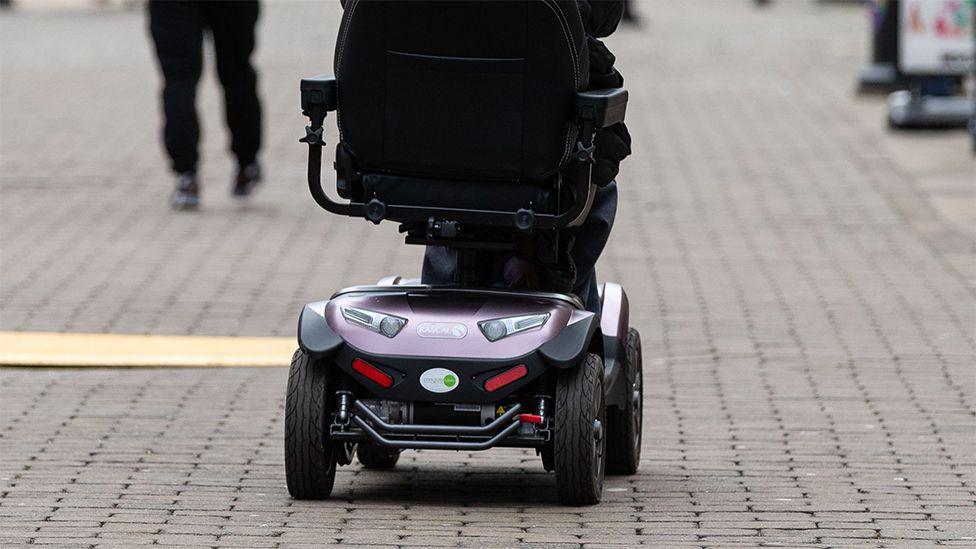
- Published12 August 2018

- Published13 April 2023
